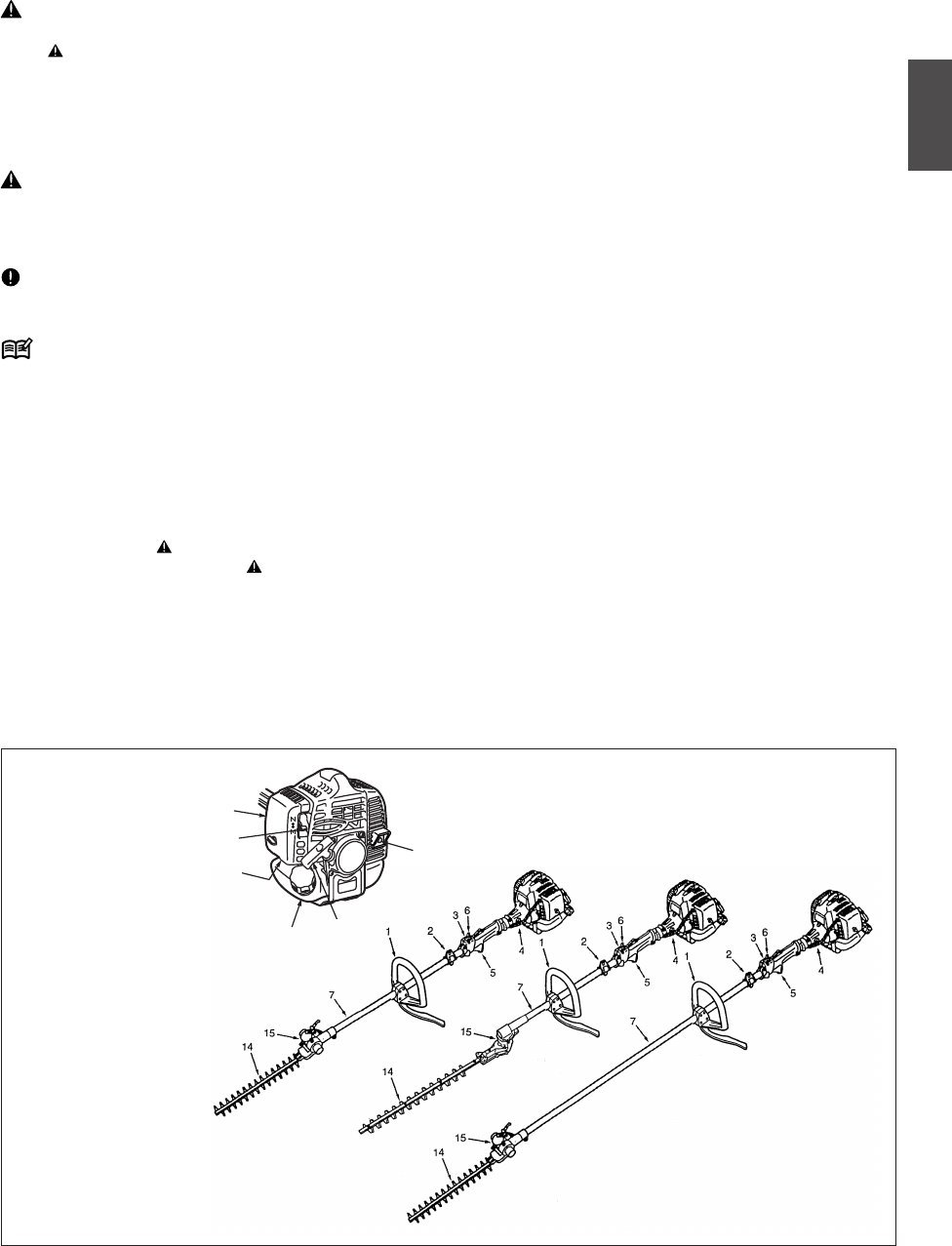
GB-3
G
B
SRTZ2610/SRTZ2610F/LRTZ2610
8
9
10
11
12
13
(SRTZ2610)
(SRTZ2610F)
(LRTZ2610)
Information
This machine is equipped with an Overload Cancellation Mechanism.
When the cutting blades have got into metal wires or twigs difficult to cut, the mechanism works as a shock absorber,
and protects the gears and the blades from severe reaction which could give damage to those parts.
When the blades are frequently caught by twigs, please check the following points:
1. Size of the twigs --> Never try to cut twigs thicker than 5 mm.
2. Condition of the blade edges --> Replace the worn-out blades.
Thank you for choosing our product.
SAFETY FIRST
Instructions contained in warnings within this manual marked
with a
symbol concern critical points which must be taken
into consideration to prevent possible serious bodily injury, and
for this reason you are requested to read all such instructions
carefully and follow them without fail.
WARNINGS IN THE MANUAL
WARNING
This mark indicates instructions, which must be followed in or-
der to prevent accidents, which could lead to serious bodily in-
jury or death.
IMPORTANT
This mark indicates instructions, which must be followed, or it
leads to mechanical failure, breakdown, or damage.
NOTE
This mark indicates hints or directions useful in the use of the
product.
1. Parts location
(1) Loop handle
(2) Suspension point
(3) Stop switch
(4) Throttle cable
(5) Throttle trigger
(6) Throttle set button
(7) Shaft tube
(8) Spark arrester
(9) Starter knob
(10) Fuel tank
(11) Primer
(12) Choke lever
(13) Air cleaner cover
(14) Blade
(15) Transmission
Contents
1. Parts location .................................................. 3
2. Specifications ................................................. 4
3. Warning labels on the machine ...................... 4
4. Symbols on the machine ................................ 4
5. For safe operation........................................... 5
6. Set up ............................................................. 8
7. Fuel ................................................................. 9
8. Operation ...................................................... 10
9. Maintenance ................................................. 12
10. Storage ......................................................... 14
11. Disposal ........................................................ 14
12. Troubleshooting guide .................................. 15

















